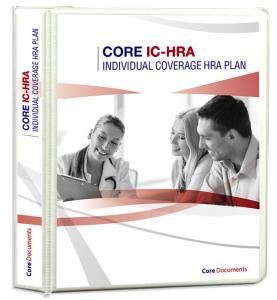CHOICE HRA Provisions Removed from One Big Beautiful Bill Act in Final Senate Revisions
The removal of the CHOICE HRA provisions from the OBBBA means the ICHRA framework remains unchanged under the existing 2019 regulations.
Background on Proposed CHOICE HRA Provisions
The One Big Beautiful Bill Act, passed by the U.S. House of Representatives on May 21, 2025, initially proposed significant updates to the ICHRA framework, rebranding it as the CHOICE HRA effective January 1, 2026. The following sections detailed these changes:
- Section 110201: Treatment of Health Reimbursement Arrangements Integrated with Individual Market Coverage
This section aimed to codify the 2019 ICHRA regulations into federal law, transitioning the regulatory framework to a statutory one. It would have formalized the CHOICE HRA as a compliant health reimbursement arrangement, ensuring integration with individual market coverage while meeting requirements under sections 9802, 2705, 2711, 2713, and 2715 of the Public Health Service Act.
- Section 110202: Participants in CHOICE Arrangement Eligible for Purchase of Exchange Insurance Under Cafeteria Plan
This provision would have amended Section 125(f)(3) of the Internal Revenue Code to allow employees enrolled in a CHOICE HRA to use salary reductions through a cafeteria plan to cover health plan premiums purchased via a Health Insurance Exchange. This change would have addressed existing restrictions, enabling employees to save on premium costs not covered by the CHOICE HRA allowance, effective for taxable years beginning after December 31, 2025.
- Section 110203: Employer Credit for CHOICE Arrangement
This section proposed a two-year tax credit for small businesses (fewer than 50 employees) adopting CHOICE HRA arrangements for the first time. The credit would have provided $100 per employee per month in the first year and $50 per employee per month in the second year, adjusted for inflation. This incentive aimed to encourage small employers, particularly those previously unable to offer health benefits, to adopt CHOICE HRAs.
These provisions were designed to strengthen the legal foundation of ICHRAs, enhance their flexibility by integrating with cafeteria plans, and promote adoption among small businesses, with 83% of new ICHRA adopters historically not offering health benefits.
Senate Revisions and Removal of CHOICE HRA Provisions
During the Senate’s review process, finalized by July 2, 2025, the CHOICE HRA provisions in Sections 110201, 110202, and 110203 were removed from the One Big Beautiful Bill Act. The Senate’s legislative text excluded these sections, and the final bill, signed into law on July 4, 2025, retained no references to the CHOICE HRA. This decision was influenced by Senate deliberations, including concerns raised by the Senate Parliamentarian about provisions requiring a 60-vote threshold under the Byrd Rule, though specific reasons for removing the CHOICE HRA sections were not detailed in public records.
Impact on ICHRA Going Forward
The removal of the CHOICE HRA provisions means the ICHRA framework remains unchanged under the existing 2019 regulations. Key implications include:
- No Statutory Codification: ICHRAs will continue to operate under the regulatory framework established in 2019, without the enhanced legal stability that federal law would have provided.
- No Cafeteria Plan Integration: Employees cannot use salary reductions through cafeteria plans to cover Exchange-purchased health plan premiums, maintaining the current restriction that limits reimbursement flexibility.
- No Tax Credits for Small Businesses: The proposed tax credits to incentivize small business adoption of ICHRAs will not take effect, potentially slowing the growth of ICHRA adoption among small employers.
- Continued ICHRA Functionality: ICHRAs remain a viable option for employers to reimburse employees for individual health insurance premiums, subject to existing compliance requirements, offering flexibility for businesses and employees.
Core Documents remains committed to monitoring legislative developments and providing expert guidance on IRS Section 125 plans, including ICHRAs. Employers and employees seeking to navigate health reimbursement arrangements are encouraged to consult with our certified professionals for tailored solutions.
Gene Ennis
Core Documents, Inc.
+1 888-755-3373
email us here
Legal Disclaimer:
EIN Presswire provides this news content "as is" without warranty of any kind. We do not accept any responsibility or liability for the accuracy, content, images, videos, licenses, completeness, legality, or reliability of the information contained in this article. If you have any complaints or copyright issues related to this article, kindly contact the author above.
35th Annual Hong Kong Dragon Boat Festival in New York Day 2 - Sunday, August 10, 2025
RockStar IMPACT 2025 Set to Take Over Los Angeles
Your Choice Plumbers Drives into the Future with a New Fleet of Ford Transit Custom Vans
Więcej ważnych informacji
 Jedynka Newserii
Jedynka Newserii

 Jedynka Newserii
Jedynka Newserii

Handel

Mercosur to tylko wierzchołek góry lodowej. UE ma ponad 40 umów handlowych, które mogą destabilizować rynek rolny
Umowa handlowa między UE a krajami Mercosur może znacząco zaburzyć konkurencję na rynku rolnym i osłabić pozycję unijnych, w tym polskich, producentów – ostrzegają rolnicy i producenci żywności. Umowie sprzeciwia się część krajów unijnych, które domagają się klauzuli ochronnych oraz limitów importowych. – Problemem jest jednak nie tylko ta konkretna umowa. Chodzi o cały system wolnego handlu, który się kumuluje z dziesiątek innych porozumień – podkreśla Andrzej Gantner, wiceprezes Polskiej Federacji Producentów Żywności.
Firma
Dzięki zdalnej weryfikacji tożsamości z wykorzystaniem AI firmy zminimalizowały liczbę oszustw. Rozwiązania wykorzystuje głównie sektor finansowy

Z najnowszych danych Eurostatu wynika, że w 2024 roku 5,9 proc. polskich firm korzystało z rozwiązań z zakresu sztucznej inteligencji. W 2023 roku był to odsetek na poziomie 3,67 proc. Wciąż jednak jest to wynik poniżej średniej unijnej, która wyniosła 13,48 proc. Jednym z obszarów, który cieszy się coraz większym zainteresowaniem wśród przedsiębiorców, jest weryfikacja tożsamości przez AI, zwłaszcza w takich branżach jak bankowość, ubezpieczenia czy turystyka. Jej zastosowanie ma na celu głównie przeciwdziałać oszustwom i spełniać wymogi regulacyjne.
Prawo
Daniel Obajtek: Własne wydobycie i operacyjne magazyny to filary bezpieczeństwa. Zgoda na magazyny gazu poza krajem to rezygnacja z suwerenności energetycznej

Były prezes Orlenu ostrzega przed zmianami w ustawie o zapasach ropy naftowej, produktów naftowych i gazu ziemnego. Jego zdaniem przygotowana przez rząd nowelizacja tzw. ustawy magazynowej i ujednolicanie unijnej polityki energetycznej to zagrożenie dla bezpieczeństwa energetycznego Polski. W jego opinii tylko silna spółka narodowa, własne wydobycie, krajowe magazyny i zbilansowany miks energetyczny zapewnią Polsce bezpieczeństwo i konkurencyjność.
Partner serwisu
Szkolenia

Akademia Newserii
Akademia Newserii to projekt, w ramach którego najlepsi polscy dziennikarze biznesowi, giełdowi oraz lifestylowi, a także szkoleniowcy z wieloletnim doświadczeniem dzielą się swoją wiedzą nt. pracy z mediami.






![Nestlé w Polsce podsumowuje wpływ na krajową gospodarkę. Firma wygenerowała 0,6 proc. polskiego PKB [DEPESZA]](https://www.newseria.pl/files/1097841585/fabryka-nesquik_1,w_85,r_png,_small.png)



.gif)

 |
| |
| |
|